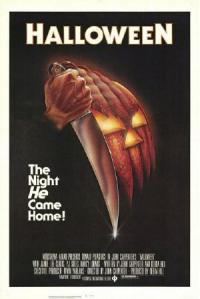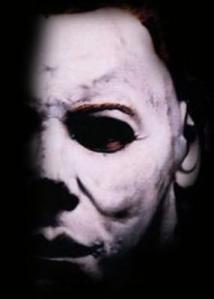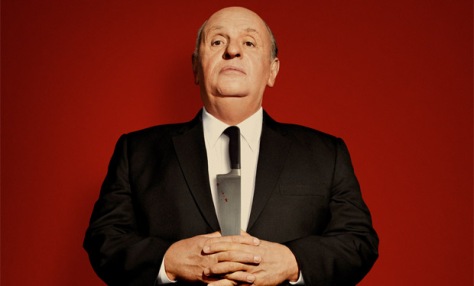Director: Alfred Hitchcock
1960
“One of the most famous movies of all time, and quite possibly the most influential horror film in history, Psycho traded the supernatural beings of the genre’s past – vampires, werewolves, zombies, and the like – for an all-too-human monster. The film made “Norman Bates” a household name and guaranteed its director’s status as the master of suspense.” (374, Steven Jay Schneider, 1001 Movies You Must See Before You Die)
Psycho was one of those films that I grew up knowing about – I mean how could you not know about the now infamous shower scene? And there’s definitely been a time or two when we’ve all nervously throw the shower curtain back to check it’s clear thanks to this film and the many inspired by it. But it was one that until recently I had not ever watched all the way through. The biggest surprise for me was that the iconic scene takes place really rather early on in the film – I was kind of like right well what happens now then? 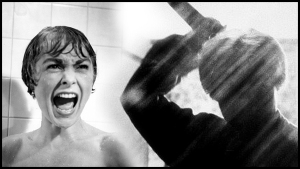 “Never before had the central character of a commercial movie been killed off so brutally less than halfway through the film.” (374) As it turns out – a lot more unfortunate victims of the deranged Norman Bates – although for me none of them really stood out quite as much as Bates.
“Never before had the central character of a commercial movie been killed off so brutally less than halfway through the film.” (374) As it turns out – a lot more unfortunate victims of the deranged Norman Bates – although for me none of them really stood out quite as much as Bates.
And speaking of Norman Bates what makes him so wonderfully scary is the fact that he is by every outward appearance a rather handsome and charming young man. 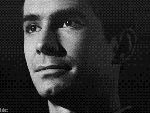 The same cannot be said for his inner personality. Anthony Perkins is exquisite as the seemingly normal but really very disturbed leading man – which I would argue he certainly begins the film as, even if he doesn’t end up in that role as the film culminates. I found Janet Leigh to be slightly forgettable really with the exception of that scene – we all know which one I’m talking about right?! But then really she isn’t actually in the film for that long thanks to Hitchcock’s decision to time the murder when he did.
The same cannot be said for his inner personality. Anthony Perkins is exquisite as the seemingly normal but really very disturbed leading man – which I would argue he certainly begins the film as, even if he doesn’t end up in that role as the film culminates. I found Janet Leigh to be slightly forgettable really with the exception of that scene – we all know which one I’m talking about right?! But then really she isn’t actually in the film for that long thanks to Hitchcock’s decision to time the murder when he did.
It was kind of strange watching the film as a whole because I had previously seen a number of clips of it, either in various programmes extolling the genius of Alfred Hitchcock (something I have to confess I am still sitting on the fence about I’m afraid to say!) or as part of my degree. You can of course see innumerable echoes of films that have followed Psycho in almost every single aspect from the soundtrack to the lighting, even to the creepy characters. While monster movies are great – don’t get me wrong I love a good vampire movie (and I do mean good – none of this sparkly Twilight crap!!) I have always found horror films where the ‘monster’ is a regular joe and could be the person standing next to you or living in your house to be far more terrifying. And the slew of excellent movies that scare the living daylights out of me thanks to their normal guy killer all stem from this film.
Not only did Hitchcock establish so many of the visual cues of the horror genre but he also capitalised on the power the soundtrack can have to the genre with that shrieking musical cue for the shower scene. Horror films are infinitely more terrifying when you have the soundtrack and in some ways the music added in post-production can make or break a scary movie. All the films that really left a mark on me after watching them have had some very tense musical scores. The legacy of Hitchcock’s visual cues should not be sniffed at either as I have recently be watching Pretty Little Liars and they basically recreated one of the final scenes of Norman Bates in the police cell. It’s a simple thing and a very subtle nod towards the godfather of suspense that I’m not sure many people would actually catch. 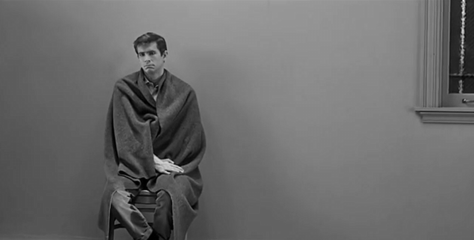
“Clearly this British-born filmmaker had found a way of tapping directly into America’s collective psyche: by making his monster so very normal, and by uniting sex, madness, and murder in one spooky and sordid tale, he effectively predicted the headlines of many of the coming decade’s top news stories.” (374)
